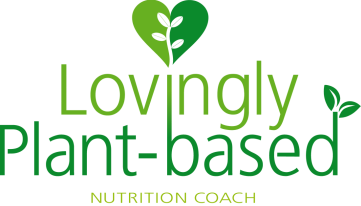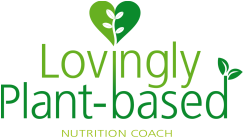Protein FAQs
I understand that when switching to a plant-based diet you might have questions.
Here are some of the frequent ones I'm asked regarding protein.
Here are some of the frequent ones I'm asked regarding protein.
“Where can I find good plant-based protein sources?”
Protein is in all plant-based foods to some degree, but there are some foods that are higher in protein than others.
Legumes, nuts, pseudograins, seeds and grains are all excellent sources of protein and probably the ones that come to mind when thinking of a plant-based diet. However there are also substantial amounts found in vegetables and fruit, such as broccoli, asparagus, artichokes, Brussels sprouts, spinach, peas, avocado, prunes, potatoes, just to name a few.
Legumes, nuts, pseudograins, seeds and grains are all excellent sources of protein and probably the ones that come to mind when thinking of a plant-based diet. However there are also substantial amounts found in vegetables and fruit, such as broccoli, asparagus, artichokes, Brussels sprouts, spinach, peas, avocado, prunes, potatoes, just to name a few.
“So how much protein do I need?”
The RDA is 0.8g of protein for every kilogram of body weight. This is not a minimum amount needed, it’s more than enough. It’s works out to be about 8-10% of total calories consumed per day and is roughly the amount found in a plant-based diet.
A 60kg woman would need about 48g of protein a day and a man of 70kg would need around 56g. That is easily found in whole food plant-based foods.
Go here to see what it looks like in real food!
A 60kg woman would need about 48g of protein a day and a man of 70kg would need around 56g. That is easily found in whole food plant-based foods.
Go here to see what it looks like in real food!
“Plant protein isn’t as complete as animal protein, so aren’t I missing out on important nutrients if I don’t eat meat or dairy?”
One of the reasons that animal protein has always been considered ‘high quality’ or ‘superior’ protein, is because it contains an amino acid profile similar to that of humans.
This means that we utilize animal-based proteins more efficiently than plant-based proteins; they have a higher ‘biological value’.
Whilst this might sound great, what it means is that body growth rates are faster. This is good news if you are breeding animals and want them to grow as quickly as possible, but it’s not such good news for us humans. Animal protein enhances cell division and growth rate, which may mean an increase in cancer growth rate too. It also stimulates the production of growth factors, triggering earlier menarche in women, which may be linked to breast cancer later on in life. Plus, animal protein contains fat and cholesterol (yes, even the lean meat) and if we're trying to eat foods that are heart-friendly, we need to steer clear of artery-clogging meat.
This means that we utilize animal-based proteins more efficiently than plant-based proteins; they have a higher ‘biological value’.
Whilst this might sound great, what it means is that body growth rates are faster. This is good news if you are breeding animals and want them to grow as quickly as possible, but it’s not such good news for us humans. Animal protein enhances cell division and growth rate, which may mean an increase in cancer growth rate too. It also stimulates the production of growth factors, triggering earlier menarche in women, which may be linked to breast cancer later on in life. Plus, animal protein contains fat and cholesterol (yes, even the lean meat) and if we're trying to eat foods that are heart-friendly, we need to steer clear of artery-clogging meat.
“So, if plant-based proteins are ‘incomplete’, don’t you have to eat certain combinations of food in order to compensate for the missing amino acids?”
Well, whilst it’s true that not each and every single plant-based food has the complete amino acid profile mentioned before, if you're eating enough plant-based foods and enough calories, you are getting a good selection of amino acids, which in turn will do their job quite nicely. The food combination theory, which stated that we had to combine complimenting foods in a meal in order to get complete protein, has been debunked.
Protein
What is protein?
Amino acids
How much protein do we need?
Examples of plant-based protein meals
Plant-based protein & athletes
Copyright 2021 Nicki Perkins | www.lovinglyplantbased.com All rights reserved.
All content, videos and images found on lovinglyplantbased.com may not be reproduced or distributed, unless permitted in writing by Nicki Perkins, lovinglyplantbased.com
All content, videos and images found on lovinglyplantbased.com may not be reproduced or distributed, unless permitted in writing by Nicki Perkins, lovinglyplantbased.com

